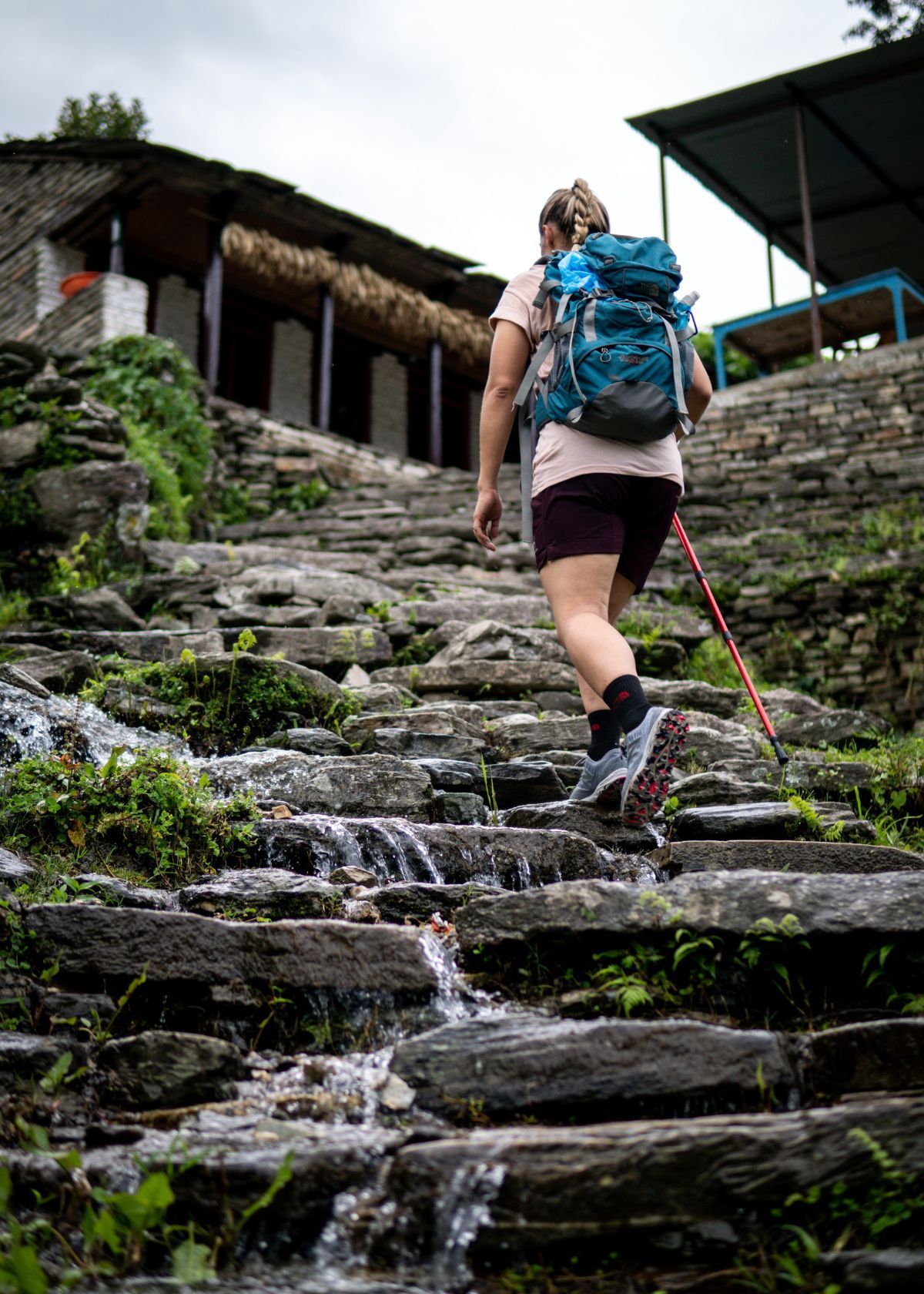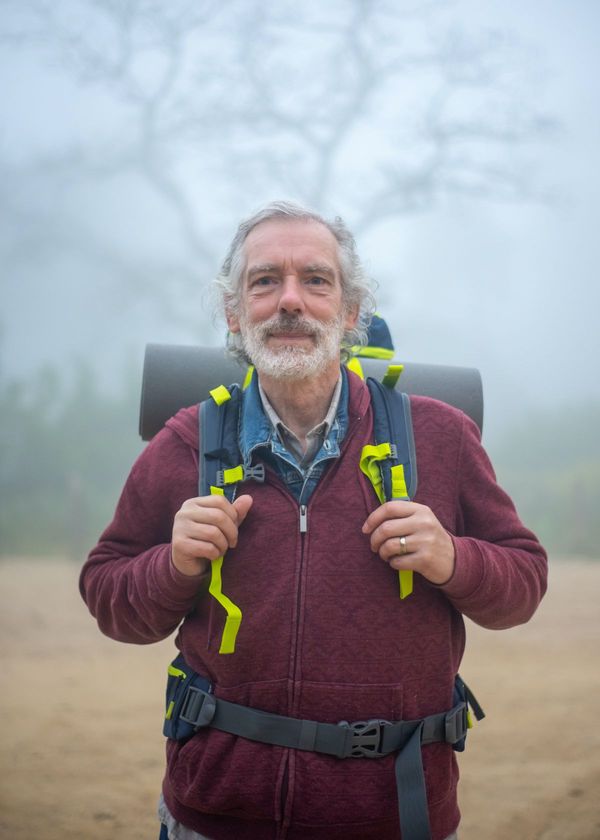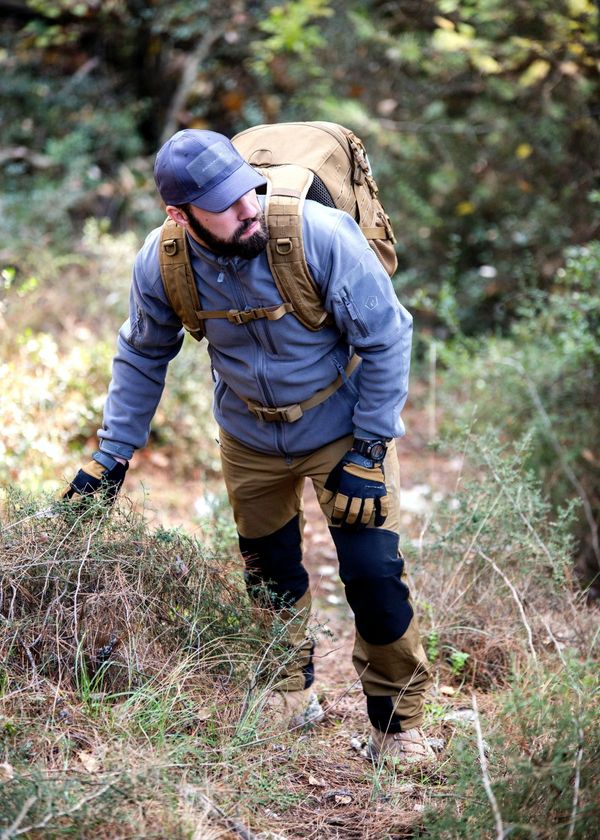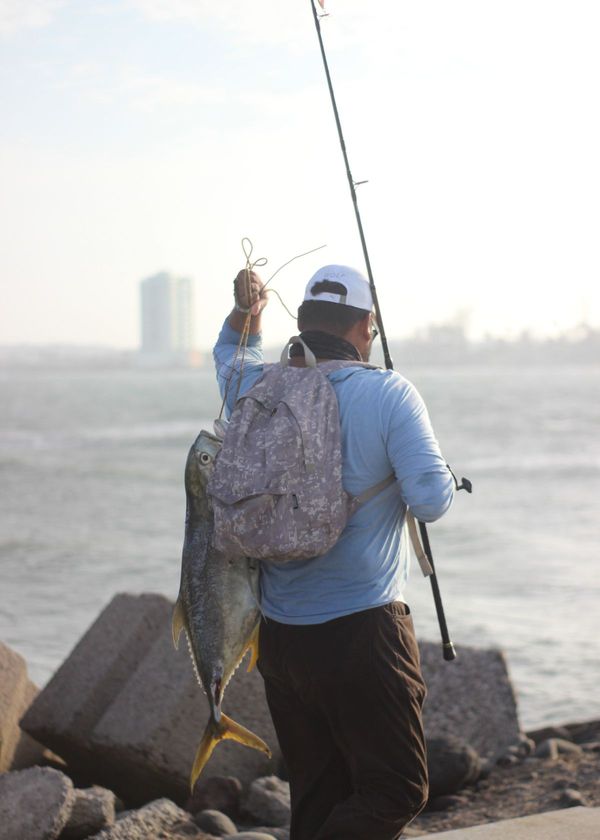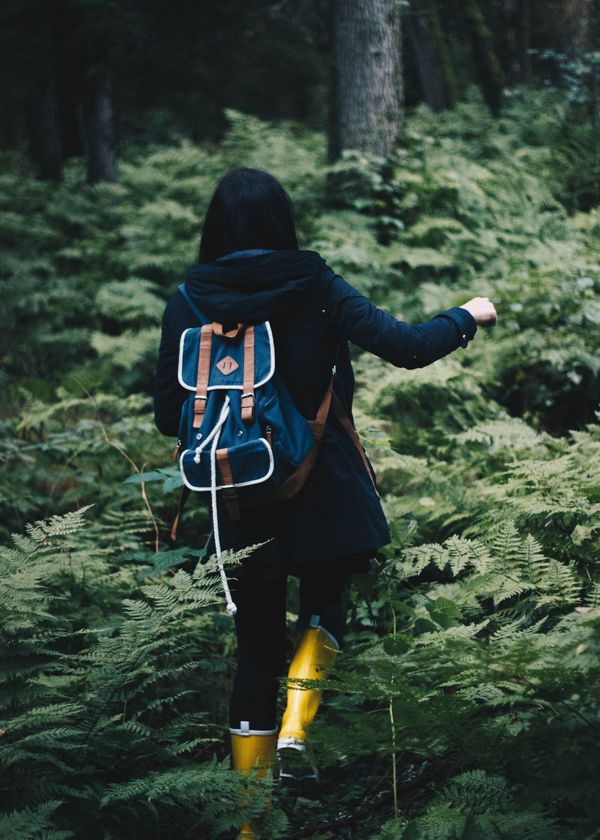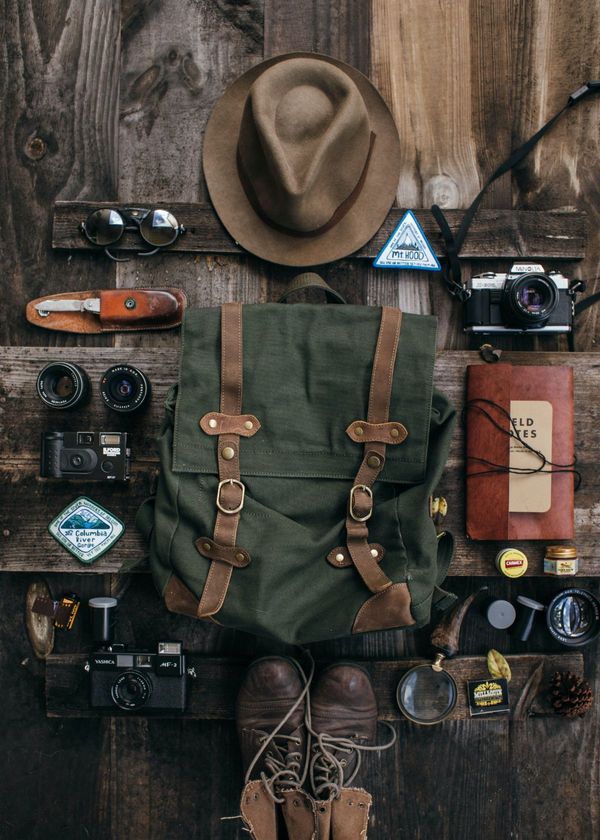Backpacking is a form of independent travel that has captured the hearts of adventurers and thrill-seekers worldwide. It involves traveling on foot with a fully loaded pack containing all the necessities for survival, including food, water, shelter, and other essential gear.
Backpacking can take you to remote and wild locations, far away from the beaten path, allowing you to experience the beauty of the natural world in its most raw and unspoiled form.
At its core, backpacking is about exploration and self-discovery. It challenges you to push beyond your physical and mental limits and exposes you to new cultures, people, and ways of life.
With only your pack and two feet, you are free to roam the wilderness, follow your intuition, and create unforgettable memories that will last a lifetime.
Backpacking can be a transformative experience that teaches you to be self-reliant, resourceful, and adaptable. It's an opportunity to disconnect from the distractions of modern life and connect with the natural world in a way that's impossible to achieve from the comfort of a hotel or resort.
Whether you're a seasoned adventurer or a curious beginner, backpacking has something to offer everyone who's looking to escape the mundane and embrace the unknown.
Equipment Needed for Backpacking
Backpacking is a great way to explore the outdoors and get in touch with nature. However, it requires the right equipment to ensure your comfort and safety during your conventional vacation trip.
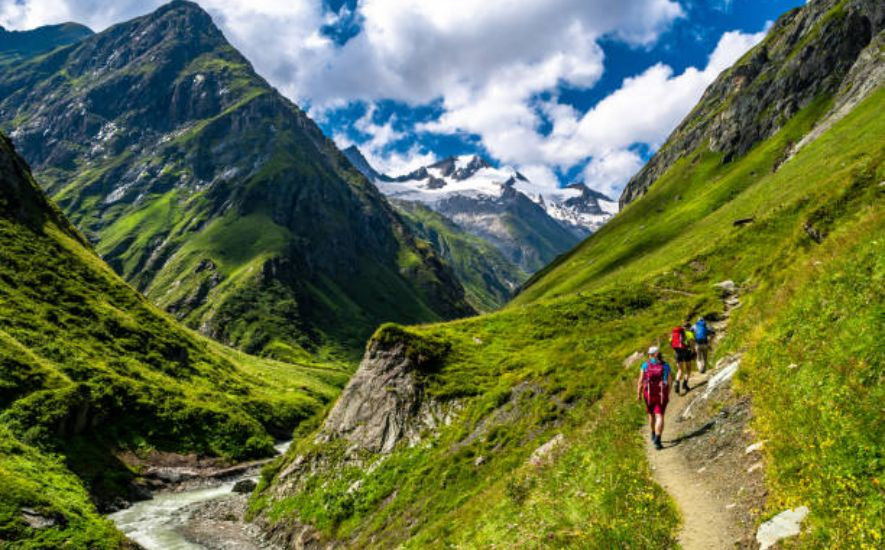
Essential Items
The following essential items are necessary for a backpacking trip:
- Backpack - A good backpack is essential to carry all of your gear. It should be comfortable and fit well to avoid discomfort and back pain. Consider a backpack with adjustable straps and a well-ventilated back panel.
- Tent - A good quality tent is essential to protect you from the elements and provide a comfortable place to sleep. Consider the size, weight, and ease of setup when choosing a tent.
- Sleeping Bag - A high-quality sleeping bag is essential to keep you warm and comfortable during the night. Consider the temperature rating, weight, and insulation type when choosing a sleeping bag.
- Sleeping Pad - A sleeping pad is necessary to provide insulation and cushioning between you and the ground. It can also make your sleeping experience more comfortable. Consider the size, weight, and level of insulation when choosing a sleeping pad for a good night's sleep.
- Water Filtration System - Access to clean drinking water is essential for your survival. A water filtration system allows you to drink safely from natural sources. Consider the type of filtration system, its weight, and its effectiveness when choosing a water filtration system.
- Stove and Cookware - A stove and cookware are necessary to prepare food and hot drinks. Consider the weight and size of the stove and cookware, fuel type, and availability.
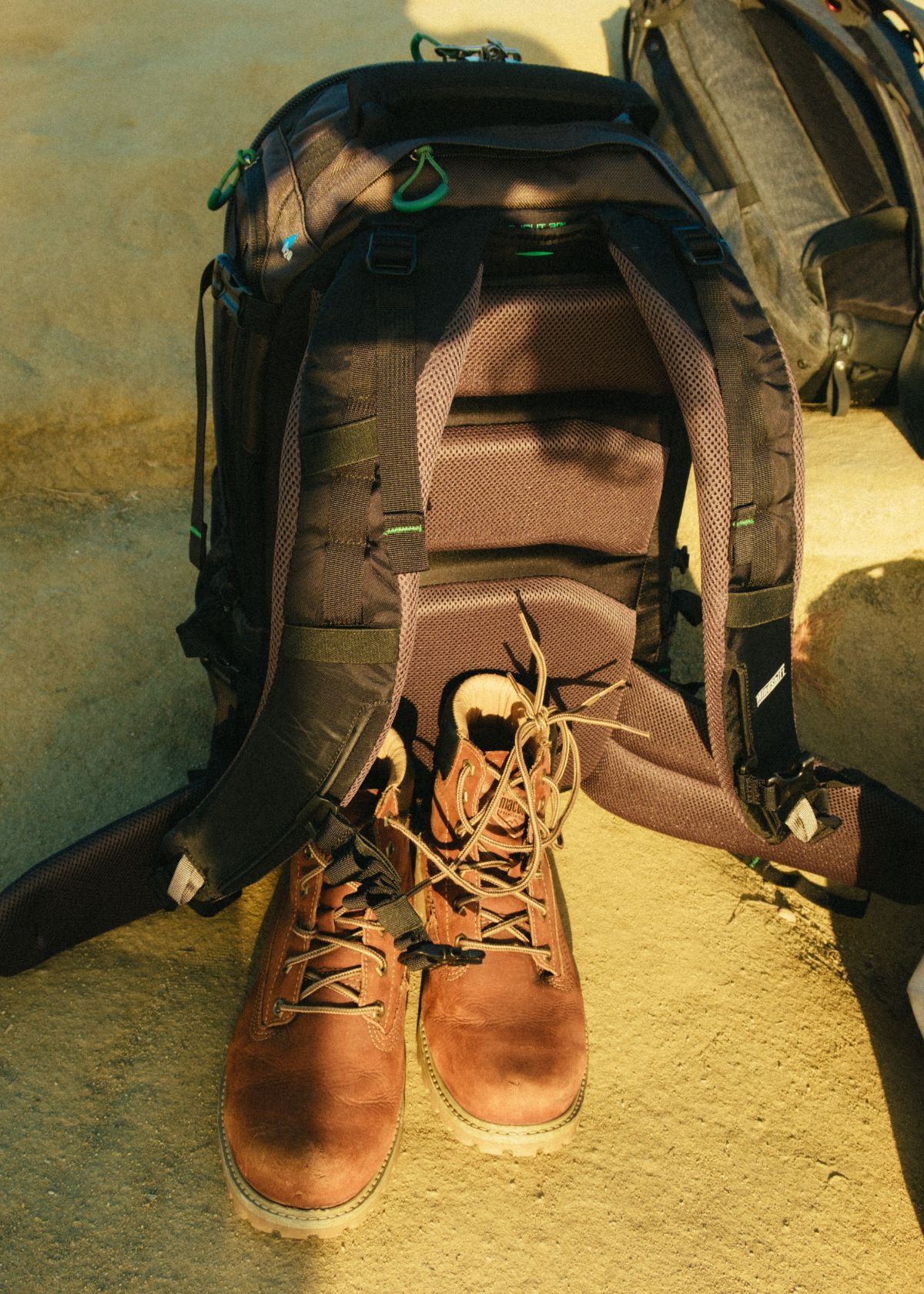
Clothing
The right clothing is essential to ensure your comfort and safety during your backpacking trip. Here are some of the clothing items you will need:
- Base Layers - Base layers wick moisture away from your skin and regulate your body temperature. Consider the fabric type and weight when choosing base layers.
- Insulation Layers - Insulation layers provide warmth and can be added or removed as needed. Consider the weight and compressibility of insulation layers.
- Outer Layers - Outer layers protect you from the elements and provide a barrier against wind and rain. Consider the weight, durability, and waterproofing of the outer layers.
- Hats, Gloves, Hiking shoes, hiking socks, and Scarves - These accessories provide additional warmth and protection against the elements. Consider the weight and compressibility of these items.
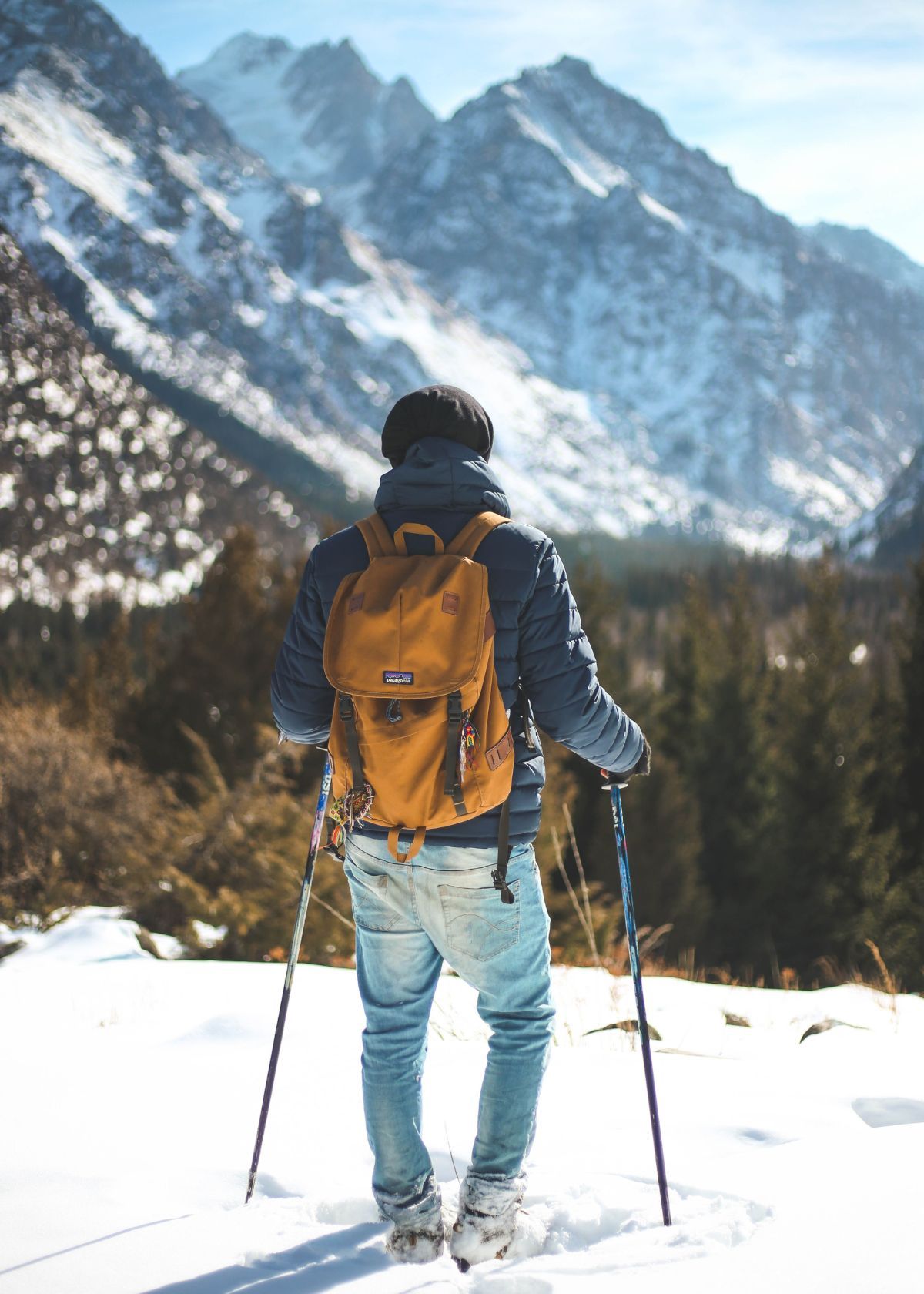
Accessories
Several accessories can make your backpacking trip more enjoyable and safe. Here are some of the accessories you will need:
- Headlamp or Flashlight - A headlamp or flashlight is essential to navigating at night or in low-light conditions. Consider the weight, brightness, and battery life when choosing a headlamp or flashlight.
- Navigation Tools - Navigation tools, such as a map, compass, or GPS, are essential to navigate and stay on course during your backpacking trip. Consider the weight and reliability of these tools.
- First Aid Kit - A first aid kit is essential to treat minor injuries or emergencies during your backpacking trip. Consider the size and weight of the first aid kit and the items included.
- Sun Protection - Sun protection, such as sunscreen and sunglasses, is necessary to protect your skin and eyes from the harmful effects of the sun. Consider the SPF rating of the sunscreen and the level of protection provided by the sunglasses.

Preparing for a Backpacking Trip
Preparing for a backpacking trip can be an exciting and rewarding experience, but it requires careful planning and preparation to ensure a safe and enjoyable journey.
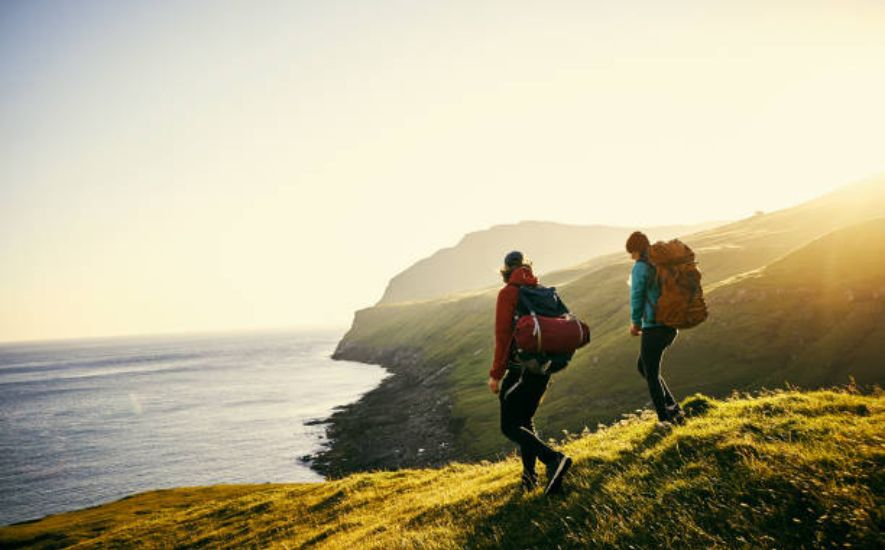
Destination and Itinerary Planning
Before you embark on your backpacking adventure, you should decide on your destination and itinerary. Research the terrain, climate, and available resources at your destination, and plan your route accordingly.
Make sure to clearly understand your daily mileage, elevation gain, and estimated time to complete the journey.
Gear and Equipment
Choosing the right backpacking gear and equipment is crucial for a successful backpacking trip. You'll need a good quality backpack, a reliable tent, a sleeping bag and pad, a stove and fuel, and other essentials like a water filtration system, a first aid kit, and appropriate clothing.
Take into account the expected weather conditions, and make sure to pack enough food and snacks for the duration of your trip.
Physical Fitness and Training
Backpacking can be physically demanding, so being in good shape and prepared for the trip is important.
Build up your endurance and strength through regular exercise and training, focusing on cardio and leg-strengthening exercises. Consider taking shorter practice hikes with your loaded backpack to help your body adjust to the pack weight.
Leave No Trace Principles
As a responsible backpacker, practicing Leave No Trace principles is essential. This means minimizing your environmental impact by packing out all trash, using established campsites, and being mindful of where you step and what you touch. Remember that you are a visitor in the wilderness and respect the natural environment.
Safety Precautions
Safety should always be a top priority when backpacking. Make sure to carry a map and compass, and know how to use them.
Tell someone your itinerary and expected return date, and consider carrying a personal locator beacon. Be aware of potential hazards like wildlife, severe cold weather, and water crossings, and know how to respond in case of an emergency.
Backpacking Etiquette
Backpacking is a popular activity among nature lovers and adventure seekers. It involves carrying a backpack and setting off on a multi-day hike, often spending nights in the wilderness.
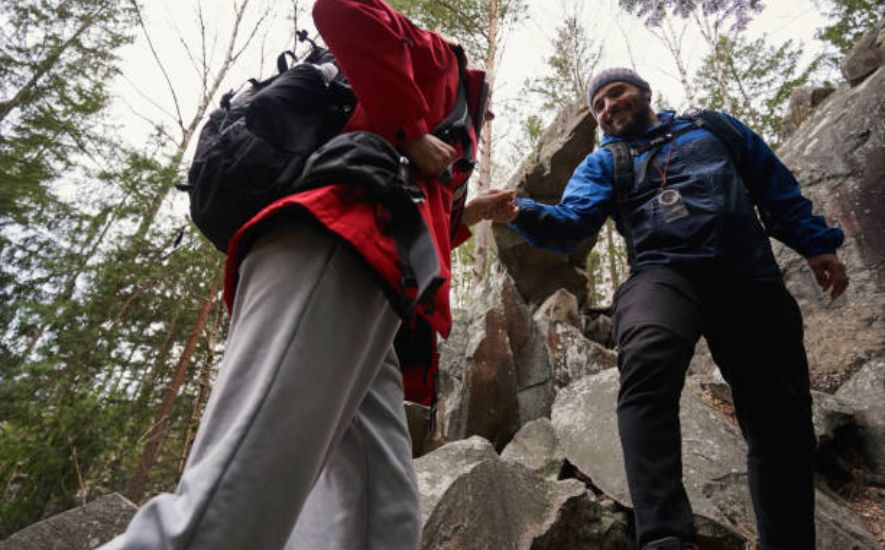
While it can be a liberating experience, it is important to remember that backpacking comes with its own set of rules and expectations.
Respect Nature
One of the fundamental principles of backpacking etiquette is to respect nature. This means enjoying the natural surroundings and taking care not to harm them. Here are some ways to show respect for nature while backpacking:
- Stay on the Trail: Stay on designated trails to avoid damaging fragile ecosystems and to prevent erosion.
- Leave No Trace: Leave the wilderness as you found it without leaving any trash or evidence of your presence. This includes packing out all trash, toilet paper, and food scraps.
- Do not harm wildlife: Observe wildlife from a safe distance, do not feed or disturb them and store your food and other scented items in bear-proof containers.
- Respect camping regulations: Follow camping regulations to preserve the natural environment and ensure fellow hikers' safety.

Be Considerate of Fellow Hikers
Backpacking often involves sharing the pacific crest trail with others. Being considerate of your fellow hikers is essential to ensure everyone enjoys a safe and pleasant experience. Here are some ways to be considerate of your fellow hikers:
- Yield to others: Yield to uphill hikers and let them pass. If you are on a horse, give hikers the right of way.
- Keep noise to a minimum: Avoid loud conversations, music, or noises that may disturb others.
- Give space to others: Keep a safe distance from other hikers to avoid crowding, and do not block the trail.
- Keep pets under control: Keep your pets on a leash and under control at all times, and clean up after them.

Adhere to Leave No Trace Principles
The Leave No Trace principles are a set of guidelines for outdoor ethics that aim to minimize the impact of humans on the environment.
Adhering to these principles is essential for preserving the natural environment and ensuring that future generations can enjoy it. Here are the Leave No Trace principles to keep in mind while backpacking:
- Plan ahead and prepare: Be prepared for your trip, and know the regulations and conditions of the area you are visiting.
- Travel and camp on durable surfaces: Use established campsites, and avoid trampling on vegetation.
- Dispose of waste properly: Pack out all trash and waste, including human waste.
- Leave what you find: Do not disturb natural features or artifacts; leave them as you found them.
- Respect wildlife: Observe wildlife from a safe distance, and do not feed or disturb them.
- Minimize campfire impact: Use established fire rings, and only burn small sticks and twigs. Put out fires completely before leaving.
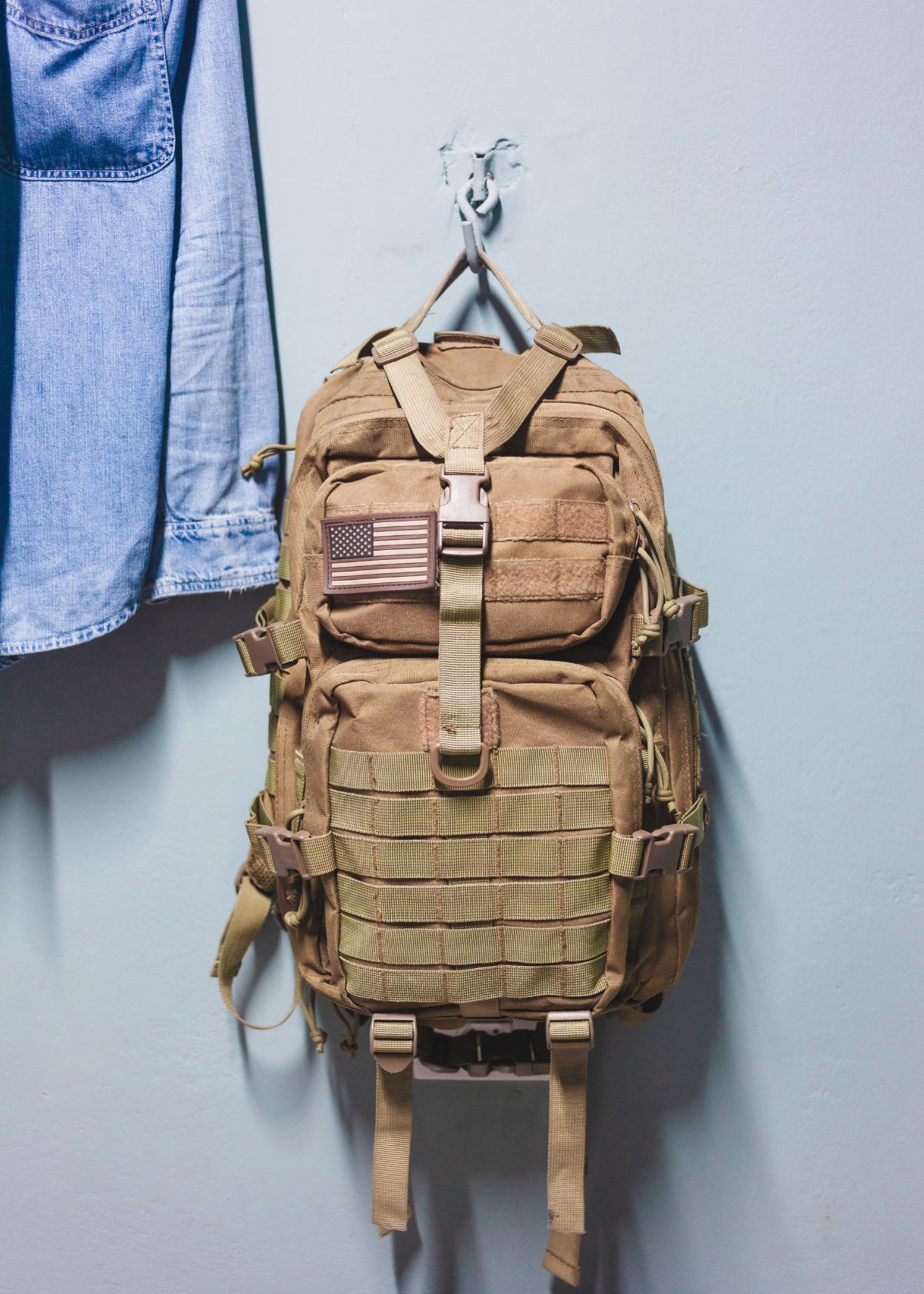
Backpacking Safety
Backpacking is a great way to explore the outdoors, but taking safety precautions is important to ensure a successful and enjoyable trip.
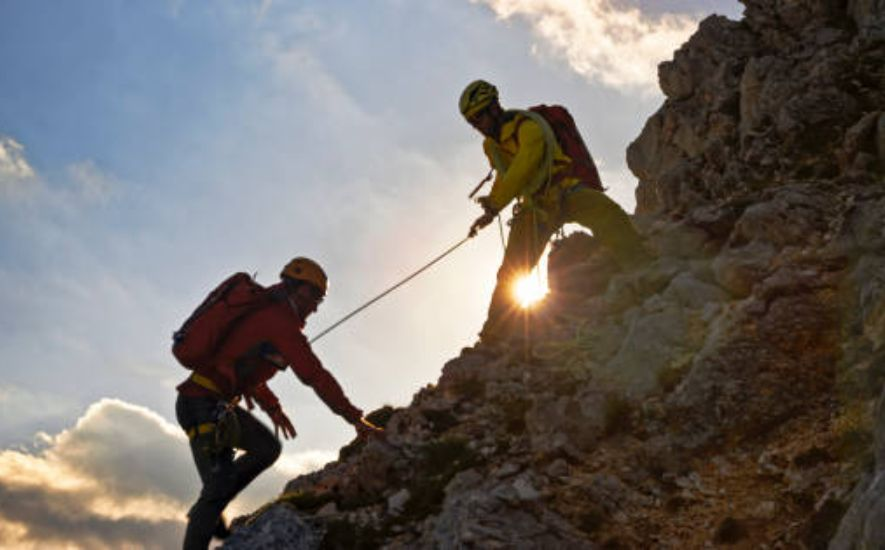
Planning and Preparation
Before you embark on a backpacking trip, it's important to research the area you will be exploring. Familiarize yourself with the terrain, weather patterns, and wildlife.
Check the local weather forecast and trail conditions. Inform someone of your itinerary and expected return date in case of an emergency.
Gear and Equipment
Carrying the appropriate camping gear and equipment ensures your safety on a backpacking trip.
A good quality backpack with a comfortable fit, waterproof tent, sleeping bag, and pad, appropriate clothing for the climate, sturdy footwear, headlamp, and navigation tools such as a map and compass or GPS, are all necessary gear. Carry a first-aid kit and know how to use it.
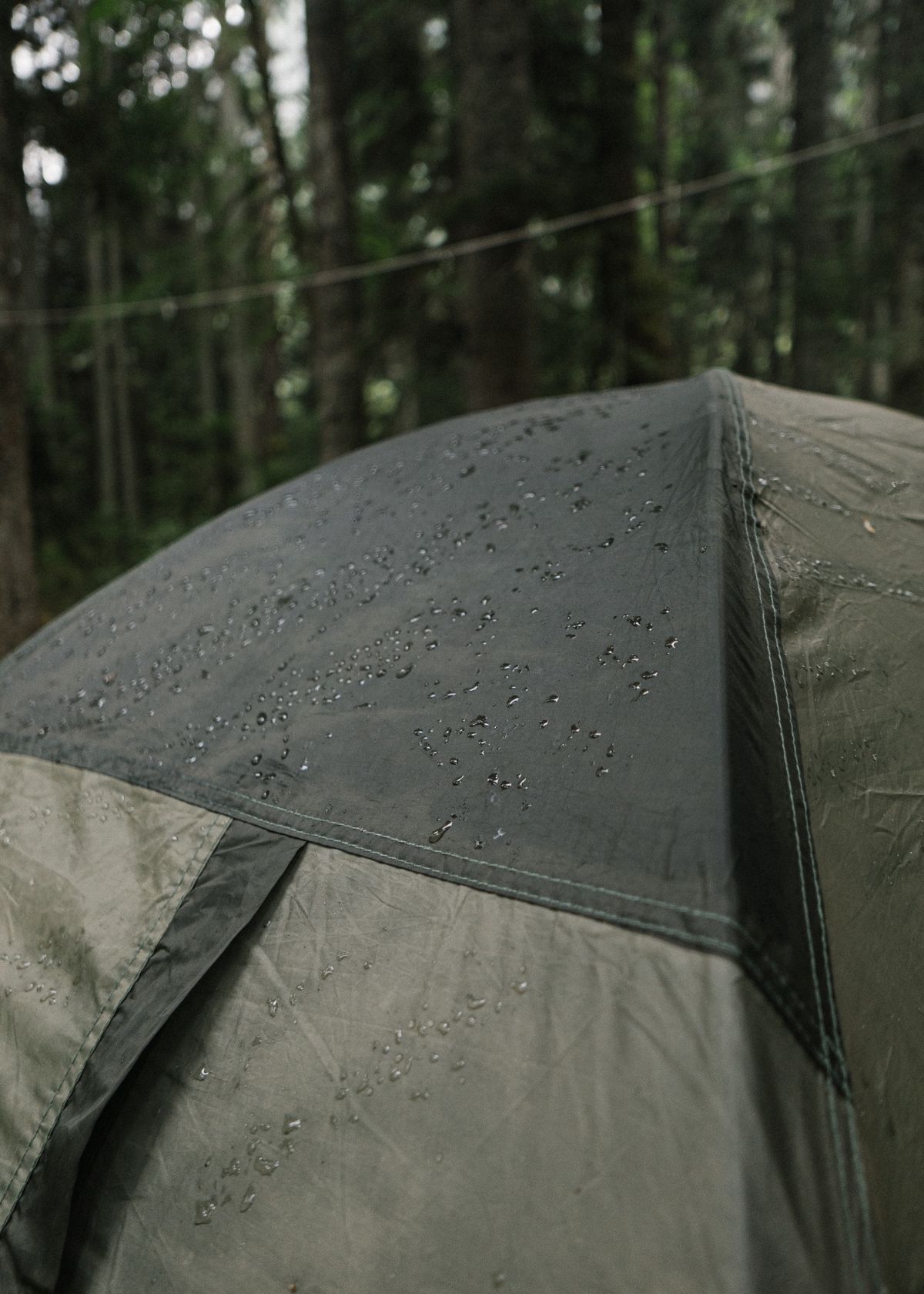
Food and Water
Carry enough food and water for the duration of your trip. Plan to carry at least 2 liters of water per day, and more in hot climates.
Always pack more food than you think you will need, and bring snacks for energy during the day. Store food and waste properly to avoid attracting wildlife.

Emergency Procedures
In case of an emergency, it's important to know how to respond. Carry a whistle to signal for help, and ensure you know how to use it.
Learn basic first aid skills and know how to respond to common injuries such as sprains, cuts, and blisters. In case of a serious emergency, carry a personal locator beacon (PLB) or satellite communicator.
Best Backpacking Destinations
Backpacking is an excellent way to experience the world and immerse oneself in new cultures. It involves traveling light, exploring natural landscapes, and experiencing the beauty of different countries.
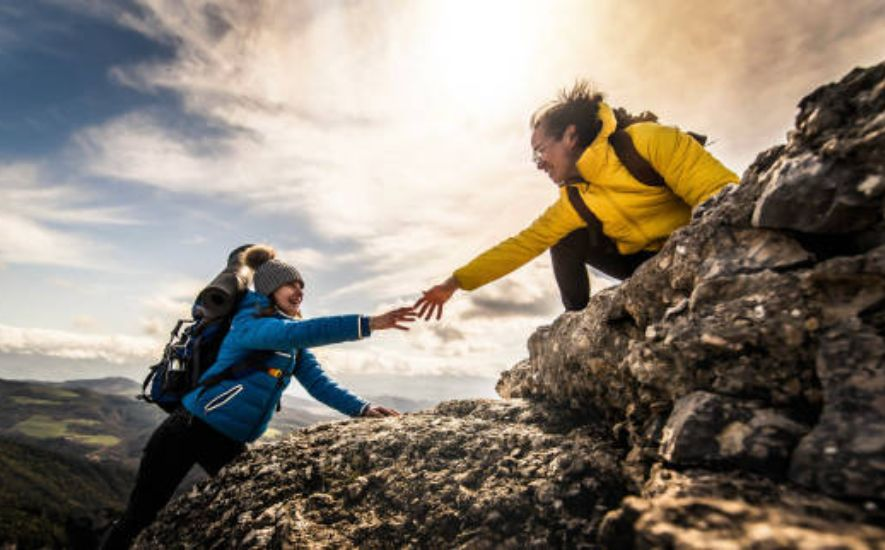
Whether you're a seasoned backpacker or a novice, finding the best destinations can be challenging.
Southeast Asia
Southeast Asia is one of the most popular backpacking destinations. It offers an array of experiences, from pristine beaches to dense jungles and historic temples.
Countries like Thailand, Vietnam, Cambodia, Laos, and Myanmar are famous for their affordable prices, hospitable locals, and vibrant nightlife. You can trek through the lush jungles of Chiang Mai, explore the stunning beaches of Bali, or explore the ancient ruins of Angkor Wat.
South America
South America is another popular destination for backpackers. It offers diverse experiences, from the Amazon rainforest to the Andes Mountains.
Countries like Peru, Bolivia, Colombia, and Ecuador are famous for their stunning landscapes, national parks, rich culture, and friendly locals. You can hike to Machu Picchu, the iconic Incan ruins, or explore the vibrant cities of Buenos Aires and Rio de Janeiro.
Europe
Europe may not be the most affordable destination for backpackers, but it offers a unique cultural experience. Countries like Spain, Italy, Germany, and France are famous for their historic architecture, art, and food.
You can explore the medieval cities of Prague and Krakow, hike the Swiss Alps, or cycle through the stunning countryside of Tuscany.
New Zealand
New Zealand is one of the best destinations for outdoor enthusiasts. It offers various outdoor activities, from hiking to bungee jumping.
The country is known for its stunning natural beauty, with fjords, glaciers, and mountains. You can also go mountain biking in the countries like New Zealand. You can hike the Milford Track, explore the geothermal wonders of Rotorua, or ski the slopes of Queenstown.
Australia
Australia is a popular destination for backpackers, known for its laid-back lifestyle, stunning beaches, and unique wildlife.
The country offers an array of outdoor activities, from surfing to hiking. You can explore the stunning Great Barrier Reef, hike the Blue Mountains, grand canyon, or take a road trip along the iconic Great Ocean Road.

Frequently Asked Questions (FAQs)
Are you curious about backpacking but don't know where to start? Or maybe you have some general questions about this exciting style of travel?
Our FAQ section is here to help answer some of the most commonly asked questions about backpacking. From packing tips to safety concerns, we've got you covered. So, take a look and see if we can help make your backpacking journey even more enjoyable!
Why is it called backpacking?
The term "backpacking" comes from backpackers carrying their belongings in a backpack while traveling, hiking, or camping.
The backpack is usually made of durable material and has straps that allow the traveler to carry it on their back, hence the name "backpacking."
The practice of backpacking as a recreational activity emerged in the early 20th century with the development of lightweight camping and hiking gear.
It was initially popularized in Europe, where it was known as "tramping" or "rambling," but the term "backpacking" became more commonly used in North America.
What is considered backpacking?
Backpacking is an outdoor recreation involving carrying all necessary gear and supplies in a backpack while hiking or trekking through the backcountry or wilderness areas.
Backpacking is typically a multi-day trip and involves camping in remote areas, preparing meals on a portable stove or fire, and filtering water from natural sources.
Backpacking differs from traditional camping because backpackers travel on foot and often venture off established trails to explore remote areas.
Backpackers must be self-sufficient and prepared for emergencies, as they are often far from civilization and may not have access to cell phone service or other forms of communication.
What is the difference between backpacking and regular traveling?
Backpacking and regular traveling are two different ways of experiencing and exploring new places, with some key differences between them. Backpacking typically involves traveling with a backpack and staying in budget accommodations such as hostels, camping sites, or cheap guesthouses.
Backpackers tend to prioritize experiences over luxury and often seek out opportunities for adventure, such as hiking, camping, and exploring off-the-beaten-path destinations. Backpackers may also plan to stay in one place for an extended period to fully immerse themselves in the local culture and way of life.
On the other hand, regular traveling may involve staying in more comfortable accommodations, such as hotels or resorts, and focusing on more touristy activities, such as sightseeing, shopping, and dining out.
Regular travelers tend to have a more structured itinerary, with a set plan of places to visit and things to do. They may not have as much time or interest in getting off the beaten path or immersing themselves in the local culture.
What does it mean to go backpacking?
Backpacking generally refers to a form of travel that involves carrying all of one's necessary belongings in a backpack or other type of lightweight and portable luggage. It often involves traveling for an extended period and visiting multiple destinations, sometimes in remote or wilderness areas.
Backpacking can take many different forms but typically involves a degree of self-sufficiency and an emphasis on experiencing local cultures and natural environments. Backpackers often stay in hostels, campsites, or other low-cost accommodations and may rely on public transportation or their own two feet to get around.
The experience of backpacking can vary greatly depending on the individual and their destination, but it often involves a sense of adventure, independence, and a willingness to embrace the unexpected. It can be a great way to see new places and meet new people while gaining a greater appreciation for the world around us.
What is the difference between backpacking and hiking in nature, and backpacking as traveling around in a different country?
While both involve carrying a backpack and spending time outdoors, hiking in nature and backpacking as a form of travel are two distinct activities.
Hiking typically involves day trips or overnight camping trips in natural areas, where the focus is on the activity of hiking itself and enjoying the natural surroundings.
Backpacking as a form of travel involves carrying all your belongings in a backpack and traveling to different destinations, often staying in hostels, camping, or using other budget accommodations.
The focus is on experiencing new cultures, meeting people, and exploring different countries and regions.
While both can be physically demanding, backpacking as a form of travel involves more logistics and planning and a willingness to adapt to new environments and cultural differences.
Conclusion
In conclusion, backpacking is much more than just a form of travel. It's an immersive experience that allows individuals to step out of their comfort zones, connect with new cultures, and gain a deeper appreciation for the world's natural beauty.
Backpacking provides an opportunity to break free from the confines of routine and embrace the unpredictable nature of life on the road.
Whether you're a seasoned traveler or a first-timer, backpacking is an adventure that will leave a lasting impression and a lifetime of memories. So pack your sleeping bags, put on your hiking boots, and get ready to embark on a journey that will broaden your horizons and enrich your soul. Happy trails!


